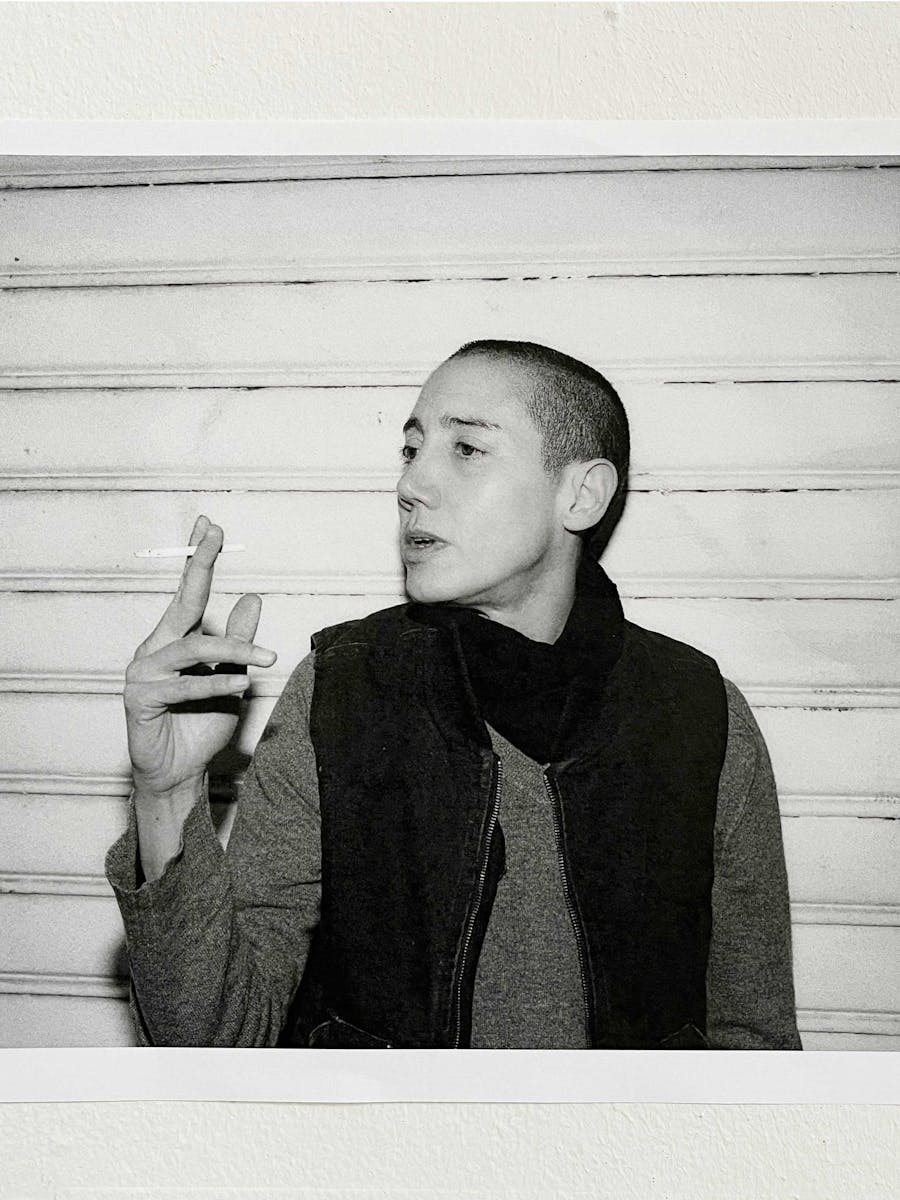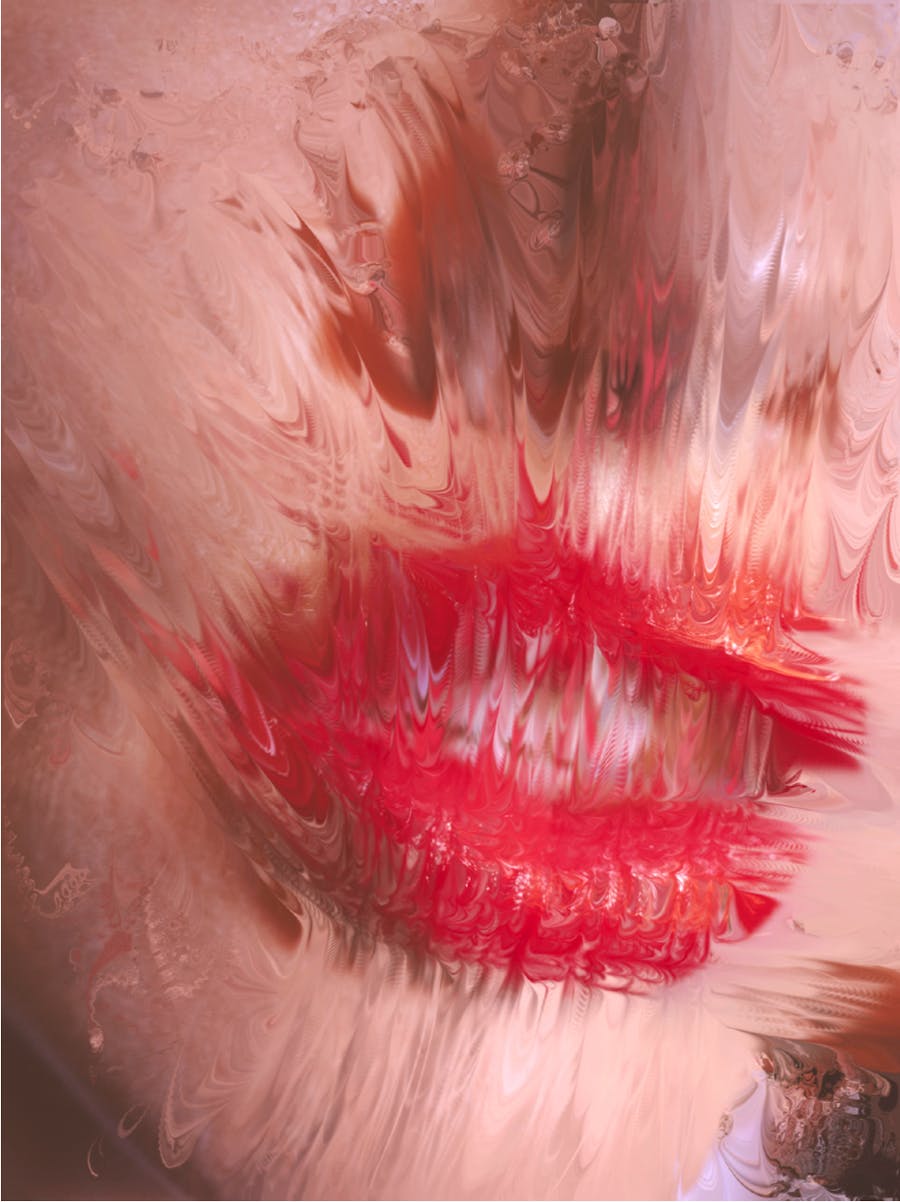In the near future, some people believe, the art of prediction will be easy. For the adepts of big data, the world is going to become predictable, thanks to the billions of data points collected through social networks and any and every connected device – your coffee, your watch, the smallest GPS-equipped scooter or the smart city as a whole – all are major suppliers of open data. Add a little AI and abracadabra: big data becomes predictive big data. Its postulate is almost biblical: the more data you possess – and we seem to be heading towards infinity – the better you are able to forecast what comes after. From this point of view, using an algorithm to turn the future into an equation becomes child’s play, like a 1:1 scale map which perfectly covers the extent of the territory. So out with gurus, witches, clairvoyants, oracles, marabouts, prophets and prognosticators… Likewise for the trendspotters, digital evangelists, strategic planners, futurologists, forecasters and other prospectors… Big data and its calculating machines, gorged on deep learning, will take care of everything, as capable of determining an action before it takes place as Philip K. Dick’s Precogs in Minority Report.
Big data, big fail
— Far be it from us to rain on this parade, but what we’ve seen of predictive big data so far has left us with some reservations. Remember how in 2016 Hillary Clinton’s teams were supported by the major players in big data? How these organizations didn’t see the election of Trump coming – far from it – any more than they anticipated Brexit? By the same token, we may also wonder why Facebook and Google, who boast of knowing us better than we know ourselves, thanks to our digital footprint, persist in offering us products we don’t want, books we’ve already read or hotel rooms we’ve already booked? At this point, is it rational to entrust our future to machines which so infallibly make so many mistakes, with such precision each time?
In fact, reading books is much more profitable for those who would predict the future. George Orwell with 1984 and Aldous Huxley with Brave New World were much more perspicacious than big data has proved itself to be in predicting – as far back as 1949 and 1932 – what our future would look like in 2019, with Trump, fake news and Newspeak but also in anticipating the dead end of ultra-liberalism – our addiction to social networks and consumption.
An algorithm named Houellebecq®
— Today we are fortunate enough to have the novels of Michel Houellebecq to predict our future. At their heart they have an algorithm much more reliable than big data souped-up with AI: the Houellebecq®. The predictive character of Michel Houellebecq’s novels has always been recognized. In his work we encounter the figure of the prophet, notably in The Possibility of An Island (2005). In 2003, moreover, much was made of the author’s sympathy for Raël, the messenger of the Elohim, who inspired the cult depicted in his novel and returned the favour by subsequently naming Houllebecq an ‘honorary priest’.
But the author did not need to be anointed by Raël to prove his qualities as a prophet, even if he exercises them in spite of himself. The Houellebecq® algorithm had already proved its efficacy in 2001 with the publication of Platform, a novel which concludes with an attack on a night-club by Islamist terrorists. ‘The bomb had gone off in the middle of Crazy Lips, the biggest bar, at the busiest time’, he wrote, before offering a few sentences later this description, the troubling documentary realism of which evokes embedded reporting: ‘In front of the entrance to the bar, a dancer was crawling on the ground, still wearing her white bikini, her arms severed at the elbows…’ An ekphrasis which would force its way into reality when, on October 12th 2002 – roughly a year later – a vehicle would explode in front of the Sari Club on Kuta Beach in Bali, killing 202 people.
The power of weak signals.
— Troubling? Certainly. Inexplicable? Not entirely. It is simply proof of the efficacy of the Houellebecq® algorithm. But what is the source of that efficacy? It is simply his ability to perceive of what we call ‘weak signals’. A weak signal, as described by Wikipedia, ‘refers, in the realm of economic intelligence, to perceptible elements in the environment – opportunities or threats – which must be detected early in order to formulate prospective choices with the aim of establishing a strategy and reducing uncertainty’.
In other words, a weak signal is the future hiding in the present. But you have to be able to detect it - and that is precisely the blind spot of big data and the other quantitative predicting machines which, bombarded with data, end up being unable to perceive weak signals. Drowning in an ocean of information, doped up on data, the machines become completely unable to see the ripples on the water’s surface, herald of the tsunami to come.
Proprietary software
— Conversely, the Houellebecq® algorithm is able to apprehend them thanks to its sophisticated, highly developed, proprietary software. From what we know of it, it is a hybrid system, comprising both of a wide-focus sociological, economic and geopolitical detector, endowed with a great capacity for scientific abstraction, and an extremely sensitive poetic probe, capable of picking up the tiniest movements in the human soul.
This algorithm has proved itself capable of drawing together the immense and the individual, of finding the link between the laws of the universe or the macroeconomy and those of our daily lives. It is what the journalist Sylvain Bourmeau has called the ‘Google Earth effect’, this ability to move from the universal to the intimate, zooming in with an incredible level of detail. As when, in his first novel, the Houellebecq® algorithm detected the notorious ‘extension of the domain of the struggle’, in other words the link, invisible until then, between the wide horizon of ultra-liberal economic globalization and the narrow contingency of our sexual and emotional poverty.
The novel Submission offered a further demonstration of the Houellebecq®’s ability to detect weak signals. It was published in 2015, on the eve of the Charlie Hebdo attacks (in the course of which the writer lost a dear friend, Bernard Maris, an economist who wrote for the publication). At the time, the collision of these two events created a shockwave of irrationalism, leading some to the absurd hypothesis that there may have been a causal link. Pandora’s Box thus opened, the writer became a bird of ill omen and was forced to go into exile and live under surveillance. The delusion machine had been set in motion, exploding every limit of paranoid overinterpretation.
A Deeper Truth
— Now, four years on, what does reading the book in the cold light of day, outside the tragic context, reveal? We must remember that this speculative work, published in 2015, describes a France beyond 2022: the author evokes a second term of office for François Hollande (who we know threw in the towel at the end of 2016), talks about journalists appearing on iTélé (whereas the channel has been rebaptised CNews) and postulates the election of a president linked to a new Muslim party (‘The Muslim Brotherhood’) called Mohammed Ben Abbès (which has yet to come to pass). A casual glance might lead us to think that the algorithm is malfunctioning. But maybe we need to think again.
In fact, as Gaspard Koenig pointed out so astutely in an opinion piece in Les Echos, the novel reveals a deeper truth: Ben Abbès is a young, cultivated president, a graduate of the ENA, elected at 43 years of age following a presidential campaign which ignored all conventional wisdom, won thanks to a bloc vote against Marine Le Pen and the Front National in the second round, aided by an alliance with François Bayrou, who will become the new President’s Prime Minister. Sound familiar?
More intriguing still, the new President, an adherent of the tenets of economic liberalism, lays out his vision of a start-up nation while finding in Europe the means to dissolve the nation state and intermediary bodies. And this moderate Islam – since Submission, unlike Boualem Sansal’s 2084 is a soft dystopia – becomes a sort of progressivism, a rampart against extremists of every stripe, leading, at the cost of a few lives lost to police violence, to a de facto post-democratic society. Still not ringing any bells?
Thus, even before Macron declared his candidacy in the presidential elections, Ben Abbès in Submission had already lent him several planks of the programme in place today. Dizzying prescience. Of course, La République en Marche has nothing to do with the Muslim Brotherhood, but look closely and a number of commonalities emerge, notably in the way that the ‘progressivism’ preached by LREM declares itself to be the sole rampart against extremists… So the Houellebecq® algorithm had successfully detected in 2015 the weak signal sent from 2019…
But beware: some people are so bowled over by the efficacy of the Houellebecq® algorithm that they are liable to get carried away, confer a halo on him and make him predict all sorts of things. This happened with Serotonin, published at the beginning of 2019, in which some people read a prefiguration of the Gilets Jaunes movement, whereas in fact the novel was offering a different prediction: that of the impasse of European agriculture, which leads French agriculture – and the narrator’s best friend – to suicide.
Desperate but not despairing
— Some might retort that the Houellebecq® algorithm is unlikely to fail in so far as it invariably predicts death. On this score, La Palisse would have made an excellent forecaster. The bird of ill omen is always right in the end, because we will all die one day or another. In fact, the algorithm is better than that: it tells us that we are all already dead. As a civilization, we are dead. In novel after novel Houellebecq explores every ideal (love, progress, consumption, sex, global tourism, transhumanism, monasticism, progressive religion, serotonin) as so many dead ends.
Desperate? Yes, but not necessarily despairing. For as soon as there is nothing left to hope for, we have to start living. It is this luminous part of Houellebecq’s ‘depressionism’ that Agathe Novak-Lechevallier has so brilliantly revealed in an essay entitled, Houellebecq, the art of consolation (Stock). Consolation or the subtle art of resisting the desolation which is our common lot.
Moreover, does Houellebecq not make us feel the flickering light of consolation through his magnificent titles? Listed, they read like a manifesto, in which he seems to tell us that despite the extension of the domain of the struggle, thanks to the art of struggle and serotonin, we can stay alive, (delete comma) because despite our submission to the times and to the elementary particles of which we consist, there always exists beyond time the possibility of an island – on Lanzarote or elsewhere – and, whatever the map and the territory, before the configuration of the final shore, there is always a platform available to us for a possible renaissance.
So : Houellebecq the prophet? Undeniably. But perhaps as much a bird of ill omen as a fortune teller.
Translated into English by Sara & Emma Bielecki.


